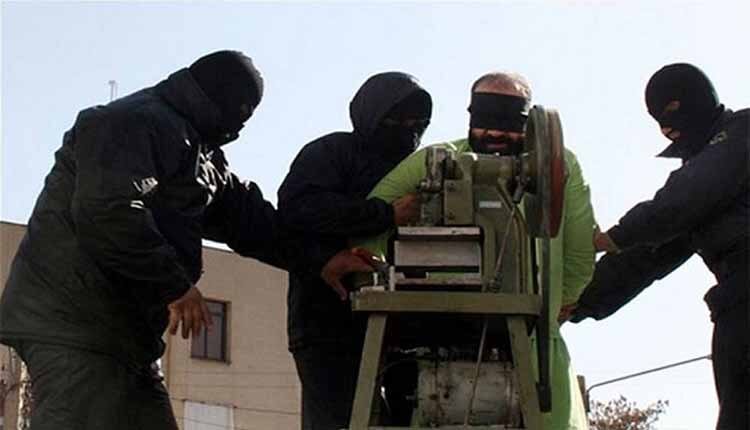A prisoner’s hand got infected after his fingers were amputated in Tehran’s Evin Prison.
Four fingers of Seyyed Barat Hosseini, an Iranian prisoner who was sentenced to amputation for robbery were cut off in Tehran’s Evin Prison on May 31.
According to the former political prisoner and civil rights activist, Arash Sadeghi, the man’s fingers were amputated with a guillotine-like device that the prison had earlier acquired.
Arash Sadeghi said in a tweet on June 2 that the guillotine machine arrived at the prison about a month ago and was installed at the infirmary to carry out such sentences.
According to recently obtained reports, Seyyed Barat Hosseini was from Kermanshah and was sentenced to having his fingers amputated on the charge of robbery from the house of Seyed Kazem Sadatieh Firoz – a retired judge and the plaintiff in the case.
After the sentence was carried out, Seyyed Barat Hosseini was transferred to Adl Hospital in Tehran (under the supervision of the judiciary) due to heavy bleeding. It is said that he was transferred to Taleghani hospital last Wednesday due to an infection in his hand.
According to Sadeghi, the man had been transferred from the Kermanshah prison to carry out the sentence.
“On May 31, the four fingers of a prisoner who had been transferred from Kermanshah Prison to Evin Prison (ward 7) were amputated. This sentence was carried out under strict security measures in the medical ward of Evin Prison,” Sadeghi wrote.
Though Iranian officials are involved in huge known embezzlement and corruption cases, Iran continues to hand down brutal sentences to petty thieves and its officials have consistently defended amputation.
On July 14, Khorasan Razavi Prosecutor mentioned the beginning of a new phase of “decisive judicial confrontations”, and without referring to statistics he said some amputation sentences are to be carried out.
Judge Mohammad Hossein Darodi said: “Fighting robbery and coercion through the issuance of decisive judicial rulings is one of the main priorities of the judicial system.”
Judge Mohammad Hossein Darodi, the prosecutor of Khorasan Razavi Center, said: “combating robbery through the issuance of decisive rulings is one of the main priorities of the judicial system.”
On June 22, UN Human Rights Office Spokesperson Ravina Shamdasani urged Iranian authorities to “urgently revise its criminal penalties to do away with any form of corporal punishment, including amputations, flogging and stoning, in line with its obligations under international human rights law and consistent with recommendations of UN human rights mechanisms.”
Before that, Amnesty International’s Deputy Regional Director for the Middle East and North Africa had called the amputating prisoners’ fingers “a form of torture” and a “shocking reminder of the shameless inhumanity of the criminal justice system in Iran which legalizes torture, a crime under international law.”











